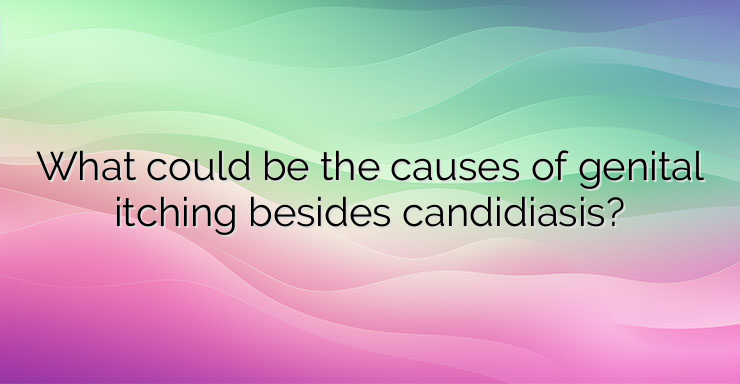Genital itching is a problem that seriously affects the quality of life and requires timely detection of the cause and treatment. The causes can be diverse – from a skin disease such as psoriasis or eczema, an infection such as candidiasis or even a sexually transmitted infection such as trichomoniasis. Treatments exist to manage or even eliminate symptoms. Genital itching is an unpleasant irritation on the skin of the genitals. Everyone has probably felt itching in their genitals at some point in their lives. But if this itching does not disappear and interferes with the quality of life, timely treatment is required. Certain skin conditions, allergic reactions, and irritation from hygiene products such as intimate gel are common causes of itching in and around the pubic area of the vagina. Genital itching is usually not serious unless: It is prolonged; Disrupts the normal quality of life; Is repetitive; It is accompanied by an irregular discharge from the vagina or a visible rash. Anyone can have itchy genitals for many reasons. Some of the most common causes of genital itching include eczema (atopic dermatitis), dermatitis, psoriasis, lichen sclerosus, lichen simplex chronicus, allergies or an allergic reaction, skin irritation from sweating or wearing tight clothing, skin irritation from personal care products such as intimate gel, perfumes and detergents, genital herpes, genital warts, pubic lice or vulvar cancer (which is very rare). Conditions that cause vaginal itching exclusively in women include: Yeast infection; Bacterial vaginosis; Trichomoniasis; Chlamydia. Gonorrhea; Menopause, genitourinary symptoms of menopause or other hormonal changes. The prognosis of the condition depends on what is causing the itching. Psoriasis, for example, has no cure. However, its symptoms can be managed. Trichomoniasis is treatable. With treatment it can clear up in about a week. Can genital itching go away on its own without specific treatment? Yes, but if the itching worsens or lasts for a long time, a specialist examination is necessary. It could be a minor skin irritation, or it could be something more serious, like a sexually transmitted infection that requires immediate treatment. Why does genital itching occur at night? Itchier skin at night is common because this is the time of day when body temperature changes and blood flow to the skin increases. The skin also loses water at night, making it extremely dry and prone to itching. References: 1. American Academy of Dermatology. 8 Reasons Your Groin Itches and How to Get Relief. (https://www.aad.org/public/everyday-care/itchy-skin/itch-relief/relieve-groin-itch) 2. DermNet New Zealand Trust. Itchy Vulva (Pruritus Vulvae). (https://dermnetnz.org/topics/the-itchy-vulva) Balanitis. (https://dermnetnz.org/topics/balanitis) 3. International Society for the Study of Vulvovaginal Disease.Genital Itch in Women (PDF). (https://www.issvd.org/resources/genital-itch-for-women) 4. Merck Manual, Consumer Version. Genital itching. (https://www.merckmanuals.com/home/women-s-health-issues/symptoms-of-gynecologic-disorders/genital-itching) 5. Queensland Government. Genital itching. (http://conditions.health.qld.gov.au/HealthCondition/condition/14/188/63/genital-itch)


Leave a Reply